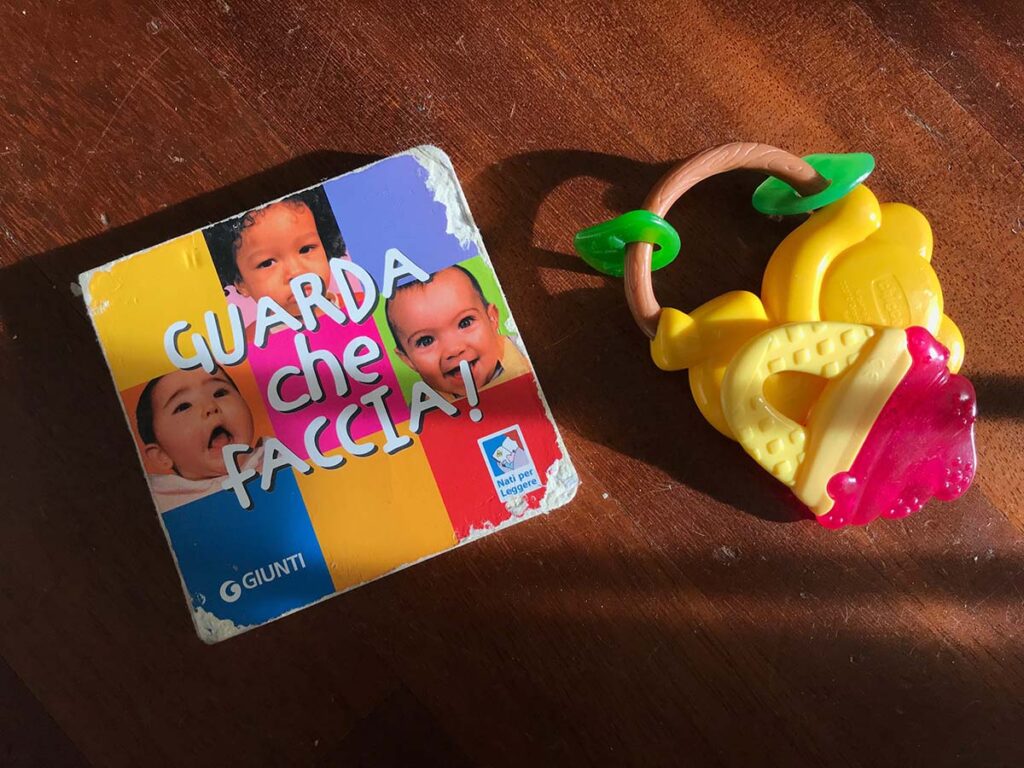(Featured photo: Andrea Spinelli Barrile)
“Are you reading to him?”
This was the question that my son’s paediatrician asked when I last called. I wanted to make sure that I would not miss any important check-ups or vaccinations since we are going to be in Argentina for the next three months. So his question took me by surprise.
I love children’s books. I took a two-year creative writing course in Argentina and focused on children’s writing for a year. Whenever I am sad, I pick up a good children’s book, and that usually puts a smile back on my face.
One of my favourite authors from my own childhood is Gianni Rodari, an Italian writer and journalist who received the Hans Christian Andersen Award in 1970 for his work. Only a small part of his work has been translated into English because a lot of his rhymes are based on nonsense and subtle linguistic jokes and they would be completely lost in translation.
I love how Rodari turns many aspects of everyday life into a story or a poem, denouncing inequality, hunger and war as he does that. For example, he writes:
You can find them everywhere –
In the wood the table is made of,
in the glass, in the rose …
I also love that he wrote about how important children’s fantasy is and theorised about how to turn mistakes into creative material. Or that he wrote about a tiny dot acting as a dictator or a generous ant offering some of the food it had stored for winter to a grasshopper that had instead been having fun – turning the popular Aesop fable upside down: it is a revolution, he said.
Already when I was pregnant, I would sometimes read some of Rodari’s rhymes aloud to my belly. I knew of plenty of evidence highlighting the importance of reading from the womb for brain building but also to create more connection between parents and children.
A controversial 1992 study by Betty Hart and Todd R Risley gave rise to what became then known as “the 30 million word gap” which they argued developed by age three depending on how much parents spoke and read to their children. This theory has been widely disputed because it was a very small observation of 42 families, but it is true that subsequent studies have found that reading does improve literacy skills.
The bottom line is that early reading is hugely important – but we don’t think it goes as far as the 30 million word gap.
Regardless of evidence, I love the idea of story time. When Lorenzo was born, I started reading to him more often and tried to make reading or telling a story before bed into a daily habit.
The thing is that since Lorenzo was born nine months ago, our family has moved around quite a lot for work, carrying only the essentials. Travelling with a bunch of books was not an option, and I am not keen on introducing Lorenzo to a Kindle for now. So we are travelling with just a couple of Lorenzo’s favourites.
One is a thick paperboard book with pictures of babies’ faces. Lorenzo smiles along with the smiley faces, though he is not so convinced about other emotions. (I also have beef with this book because while it is diverse at least culturally, the two girls that are portrayed are crying and angry. While the boys are smiling or unimpressed. I mean, who thought of that!? So I have instituted the use of a generic word for baby and don’t point out the gender when I go over each image. But I will let go of the book altogether when I find a good replacement. And to be fair, Lorenzo may chew it all before I get around to doing that … )

Another book we are travelling with is A is for Activist by Innosanto Nagara. This was a present from my friend María José. It is a little bit more complex for Lorenzo to look at because there is so much going on. But it is just the right format, and just hard enough so that Lorenzo enjoys chewing this one too. It also gives me an excuse to introduce the letters of the alphabet.
So, going back to the paediatrician’s question, I felt incredibly lucky to have a doctor like this taking care of Lorenzo, because it is not all about shots and check-ups. He told me that asking about reading was part of his regular check-ups because it helps him promote more and better readings for children starting from birth – something that is incredibly important for a child’s first 1,000 days.
What are your favourite children’s books – especially for the first 1,000 days? Do you remember what your parents would read out to you – if they did? And what do you read out to your own children or children around you? And also, what do you do if reading aloud is not an obvious choice – if you are deaf, for example?
I would love to start this conversation, and maybe even a book club – if you are interested? I look forward to hearing from you!
Until the next one,
Irene
P.S. This week will be my last one in Europe before going off to Argentina for the next three months. If you are based in Argentina or Uruguay, please drop me a note so that we can get together!
This article first appeared in The Correspondent, the member-funded platform that shut down on 1 January 2021.

